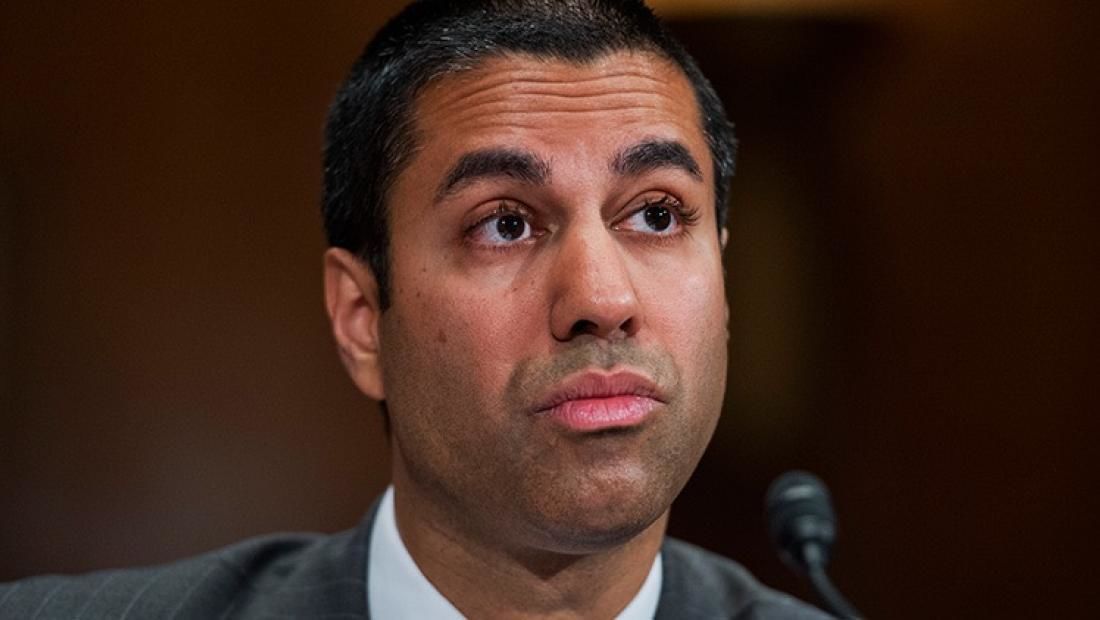Pai Seeks to Abandon Rules on Cable Carriage Advisories to Subscribers
30-day advance notice of channel changes, programming co-ownership rules no longer needed, chairman contends

The smarter way to stay on top of the multichannel video marketplace. Sign up below.
You are now subscribed
Your newsletter sign-up was successful
The FCC plans to abandon two long-standing cable TV regulations that FCC Chairman Ajit Pai considers outdated, as explained in his monthly blog that was issued Wednesday just before the agenda surfaced for the Sept. 30 Open Meeting.
One proposal will allow cable operators to advise subscribers “as soon as possible” – rather than the current 30 days in advance – of any channel carriage changes.
Pai also seeks to eliminate an FCC rule requiring cable operators to maintain online information regarding their attributable interests in video programming services and related carriage of vertically programming.
Both actions are part of the FCC’s “Modernization of Media Regulation Initiative,” Pai explained, saying that the changes will make “consumer notices more meaningful and accurate … [and] make our rules clearer.”
Pai describes the “ASAP” proposal as a plan that will “make sure consumers are accurately informed rather than confused when there are disputes between video programmers and cable operators.” He said that today’s 30-day notice requirement is no longer feasible.
“In today’s video marketplace, retransmission consent and program carriage negotiations are often concluded within days — if not hours — of the expiration of existing agreements,” Pai wrote. “It is frequently unclear, 30 days prior to a contract’s expiration, whether a new agreement will be reached, there will be a short-term extension, or programming will be dropped.
Related: Mayors Tell FCC to Keep 30-Day Retrans Notices
The smarter way to stay on top of the multichannel video marketplace. Sign up below.
He fretted that consumers can be “inundated by premature and inaccurate notices” and may ignore or miss out “on notices about actual channel lineup changes.” He acknowledged that in the confusion, some subscribers might drop their existing provider and subscribe to another service, even though the channel changes never come to pass.
“To make consumer notices more meaningful and accurate, and to make our rules clearer,” the proposed FCC Order will change the notice deadline from 30 days in advance to “as soon as possible” in cases in which carriage negotiations fail during the last 30 days of a contract, he explained.
The second cable-related agenda item involves a plan to eliminate the rule requiring that cable operators maintain in their online public inspection file information regarding their “attributable interests in video programming services and their carriage of vertically programming on systems in which they have an attributable interest.” Pai explained that this recordkeeping rule was originally adopted to help the Commission enforce channel occupancy limits.
“But those limits have long since been struck down by the U.S. Court of Appeals for the D.C. Circuit, negating any need for this requirement,” he said. “Moreover, this information can be obtained from sources other than the public inspection files maintained by cable operators, making this reporting requirement unnecessary.”
Also on the Sept. 30 FCC agenda is a plan, developed by the Consumer and Governmental Affairs Bureau involving the Internet Protocol Captioned Telephone Service (IP CTS), to bring the services into line with its cost while “preserving the viability of IP CTS for those people with hearing loss who need it,” Pai said. Use of IP CTS is paid for entirely through the FCC’s TRS Fund, and it has grown substantially in recent years. Today, this service represents almost 80% of the total minutes compensated out of the TRS Fund — at a cost of nearly one billion dollars a year.
Pai’s proposal would reduce the provider compensation rate to $1.42 per minute in 2020–21 and $1.30 per minute (the current cost-based rate) in 2021–22. If enacted, this would save the TRS Fund approximately $200 million over the next two years. Among other things, the FCC action would “for the first time … establish objective standards for assessing and testing the quality of IP CTS service,” Pai concluded.
Contributor Gary Arlen is known for his insights into the convergence of media, telecom, content and technology. Gary was founder/editor/publisher of Interactivity Report, TeleServices Report and other influential newsletters; he was the longtime “curmudgeon” columnist for Multichannel News as well as a regular contributor to AdMap, Washington Technology and Telecommunications Reports. He writes regularly about trends and media/marketing for the Consumer Technology Association's i3 magazine plus several blogs. Gary has taught media-focused courses on the adjunct faculties at George Mason University and American University and has guest-lectured at MIT, Harvard, UCLA, University of Southern California and Northwestern University and at countless media, marketing and technology industry events. As President of Arlen Communications LLC, he has provided analyses about the development of applications and services for entertainment, marketing and e-commerce.

